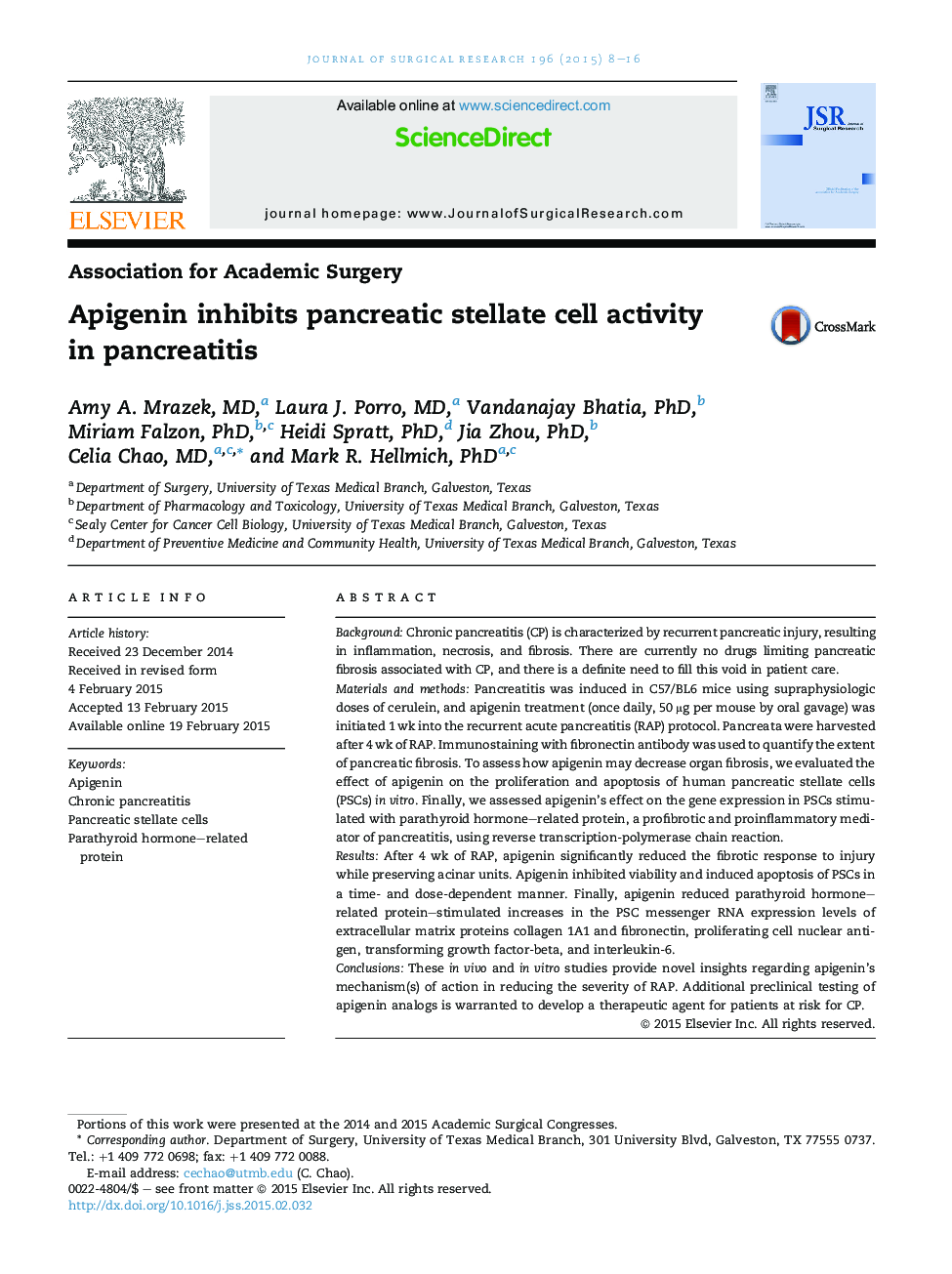| Article ID | Journal | Published Year | Pages | File Type |
|---|---|---|---|---|
| 4299954 | Journal of Surgical Research | 2015 | 9 Pages |
BackgroundChronic pancreatitis (CP) is characterized by recurrent pancreatic injury, resulting in inflammation, necrosis, and fibrosis. There are currently no drugs limiting pancreatic fibrosis associated with CP, and there is a definite need to fill this void in patient care.Materials and methodsPancreatitis was induced in C57/BL6 mice using supraphysiologic doses of cerulein, and apigenin treatment (once daily, 50 μg per mouse by oral gavage) was initiated 1 wk into the recurrent acute pancreatitis (RAP) protocol. Pancreata were harvested after 4 wk of RAP. Immunostaining with fibronectin antibody was used to quantify the extent of pancreatic fibrosis. To assess how apigenin may decrease organ fibrosis, we evaluated the effect of apigenin on the proliferation and apoptosis of human pancreatic stellate cells (PSCs) in vitro. Finally, we assessed apigenin's effect on the gene expression in PSCs stimulated with parathyroid hormone–related protein, a profibrotic and proinflammatory mediator of pancreatitis, using reverse transcription-polymerase chain reaction.ResultsAfter 4 wk of RAP, apigenin significantly reduced the fibrotic response to injury while preserving acinar units. Apigenin inhibited viability and induced apoptosis of PSCs in a time- and dose-dependent manner. Finally, apigenin reduced parathyroid hormone–related protein–stimulated increases in the PSC messenger RNA expression levels of extracellular matrix proteins collagen 1A1 and fibronectin, proliferating cell nuclear antigen, transforming growth factor-beta, and interleukin-6.ConclusionsThese in vivo and in vitro studies provide novel insights regarding apigenin's mechanism(s) of action in reducing the severity of RAP. Additional preclinical testing of apigenin analogs is warranted to develop a therapeutic agent for patients at risk for CP.
